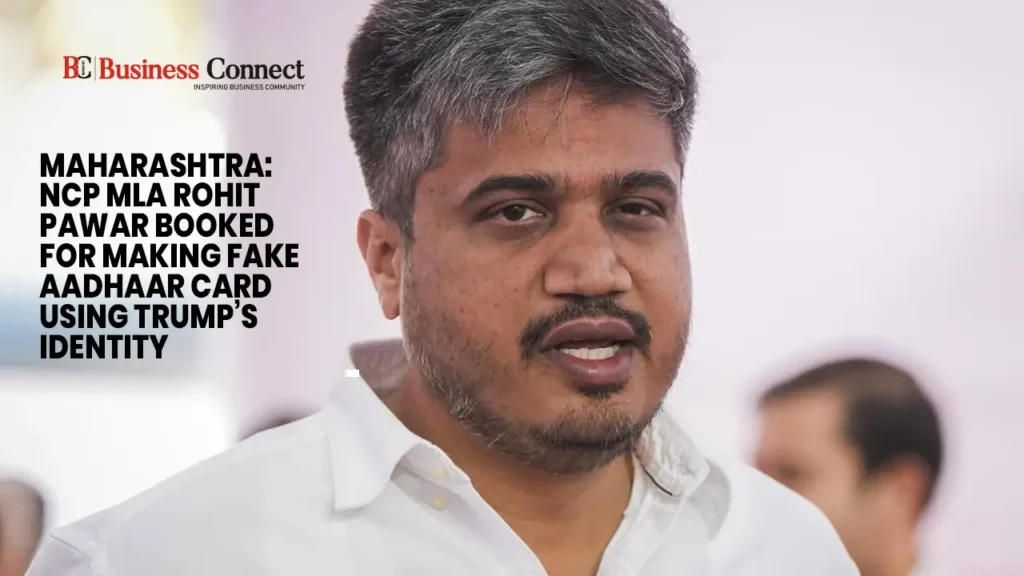During a press conference on October 16, Rohit Pawar openly showed how counterfeit Aadhaar cards could be made for as cheap as Rs 20 using an unapproved website.
MLA Rohit Pawar of the Nationalist Congress Party (Sharad Pawar group) has been charged for fabricating an Aadhaar card in the name of US President Donald Trump, according to a formal complaint filed at the South Region Cyber Police Station.
A BJP social media coordinator filed the complaint, which charges Pawar with creating and disseminating a fake Aadhaar card at a news conference earlier this month. The complaint has been filed in accordance with the Information Technology Act and pertinent parts of the Indian Penal Code concerning identity theft, forgery, and the distribution of false information.
Aadhaar card fraud
During a press conference on October 16, Rohit Pawar openly showed how counterfeit Aadhaar cards could be made for as cheap as Rs 20 using an unapproved website. A example Aadhaar card with Donald Trump’s name and photo attached to a home address in Pawar’s constituency was on display as part of the presentation.
Pawar had stated that the effort was intended to reveal how simple it was to create fake Aadhaar cards, cautioning that such flaws might enable fraudulent voter registrations and identity theft in Maharashtra’s electoral registers.
Police inquiry
The cyber police filed a case against unnamed persons involved in the creation and distribution of the fraudulent Aadhaar card after receiving the report. The process of producing and disseminating fake identification cards online, according to authorities, might compromise the integrity of national data and provide a security concern.
On condition of anonymity, a senior police official stated, “The demonstration, even if done for illustrative purposes, involves the use of forged government documents, which is a punishable offence.”
According to BJP spokesperson Navnath Ban, a case has been filed against Rohit Pawar, the website’s owner, creator, and users, among others. They have been charged with acts that might jeopardize social security.
He stated that the charges were filed under Sections 66(C) of the Information Technology Act and Sections 336(2), 336(3), 336(4), 337, 353(1)(B), 353(1)(C), and 353(2) of the Indian Penal Code.



